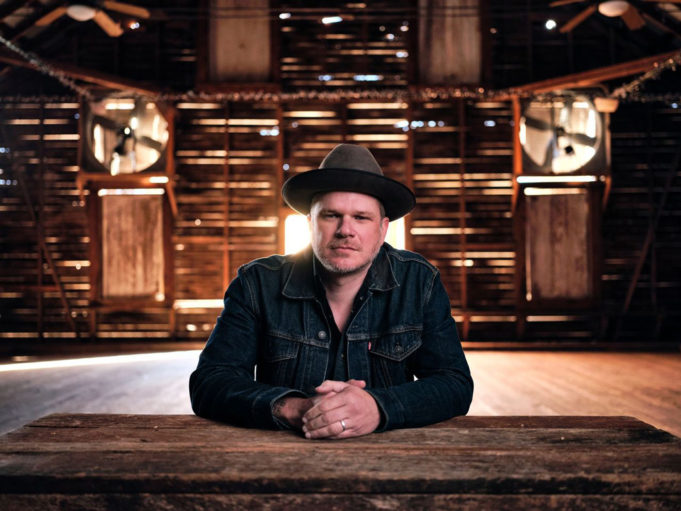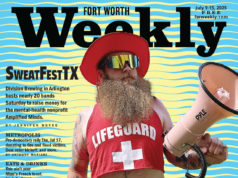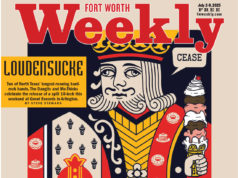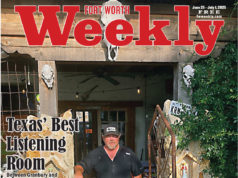As a steady fixture in the Texas country scene since his first album, 2005’s From Underneath the Old, Jason Eady has touched on myriad country sounds. Beginning with the fairly standard roots rock of his debut to the more bluesy feel of When the Money’s All Gone and the two-steppin’ honkytonk of AM Country Heaven, he’s dabbled in all of the conventional C&W motifs, but something changed around the release of 2014’s Daylight and Dark. With tracks like “Causes: Temptation” and “Consequences: Whisky & You,” Eady began to explore a more confessional tone. Stripping songs of blazing Tele runs and catgut-meting fiddle, he set out to put the focus on just his voice and acoustic guitar. Gradually, his successive albums trended more and more in this direction, with an uncluttered highlighting of simple, naked songwriting.
With his latest album, Eady intentionally decided to lean into this aesthetic more consciously than he’s ever done before. The resulting To the Passage of Time represents his most bare and confessional music yet, and, because it is so, it’s likely his best as well.
“I experimented with a lot of things over my first five records,” he said, “and at the time that I did every one of them, it was [a result of] where I was at. It wasn’t contrived. I tried a lot of different sounds, a bigger band, touring with a five-piece band, that sort of thing. And at the time, I meant it. But over time, I’ve really just settled into the songwriting thing. Now it’s just really where my head is at and really where my heart is.”
On Passage, Eady said he and his producer, Band of Heathens’ Gordy Quist, set out to intentionally try to create his starkest and most stripped-down album so far.
“This record was the most conscious choice I’ve made to do [a more intimate sound] than any other record I’ve done,” Eady said, explaining he was inspired by albums from the likes of Guy Clark and John Prine.
“When you listen to those records, they have full bands on them, but it’s so in the background, just so supportive,” he said, “so when you went to see those guys live, they were usually solo or maybe as a duo, and you didn’t miss any of that. The songs were still there. I wanted to make a record where if I performed solo, the audience didn’t miss anything.”
Like his inspirations Clark and Prine, Eady did employ top-flight session players on Passage, but their performances are understated, nearly hidden, the focus being on “serving the song,” giving the lyric and Eady’s vocal the room to stand out all the more.
“These are fantastic handpicked musicians that I just love,” Eady said. “When we were recording, they sat in the control room and weren’t allowed into the [tracking] room until they could justify what they wanted to do. To their credit, there’s songs that don’t have bass or don’t have drums. Everybody was tasteful enough and classy enough to where if they didn’t have anything [truly necessary] to add, they just didn’t. They put their egos aside — because everyone wants to play — but that’s not a very common thing.”
The sparse accompaniment lends the album’s 10 tracks an extra dose of intimacy, a sonic choice that Eady hopes will help recreate a bit of the atmosphere where the material was conceived. Much of the album was written in just two days as Eady found himself riding a wave of inspiration, staying in his bedroom and writing one song after the other, never leaving, even taking his meals in the room. He’d begin by taking pieces of ideas or lines from his notebook and expanding them until he completed a song. Once done, he found he felt like there was more there, and he’d continue working until another track was finished. Six of Passage’s songs were from this two-day burst of creative energy.
“It wasn’t my intention to do it that way,” Eady said, “and it’s really counter to my normal process, but I was riding a wave, and I just felt like if I didn’t keep going, I’d lose something.”
Eady said the evolution from Red Dirt rocker to confessional singer-songwriter was a slow one, one he felt he had to grow into.
“I had to grow into it, for sure,” he said. “Other people may not have had to take that path, but I had to, for sure. I’ve always had it in the back of my mind that that’s what I wanted to do, but I just never had the … I don’t know if ‘confidence’ is the right word, but … it’s really almost about learning to trust yourself more than anything else.”
It takes a comfort level with your craft to lay bare the bones of a song, uncomplicated by lush production and instrumental virtuosity. It leaves only the artist and his or her words and voice to paint the sonic picture.
Perhaps no song illustrates the up-close-and-personal vibe Eady sought on the album more than the single “French Summer Sun.” A talk-sing story song, it recalls the immersive, sitting-right-in-the-same-room aura of Johnny Cash’s American Recordings series. Subtle fingerpicked guitar is the only musical aspect to sit behind Eady’s spoken word.
All albums are meaningful to an artist, but Eady admits To the Passage of Time holds an extra special place in his heart.
“I’ve never felt this way about a record,” he explained. “This is the most intentional I’ve ever been about an album as far as the production goes. We set out to make a very specific kind of record and were very intentional about how the record should sound. And we got it. We got exactly what we set out to do.”













Great article! I met you, the writer, at Walmart today. Thanks for the heads up about your story. I didn’t realize Jason had a new album out. Excited to give it a listen.